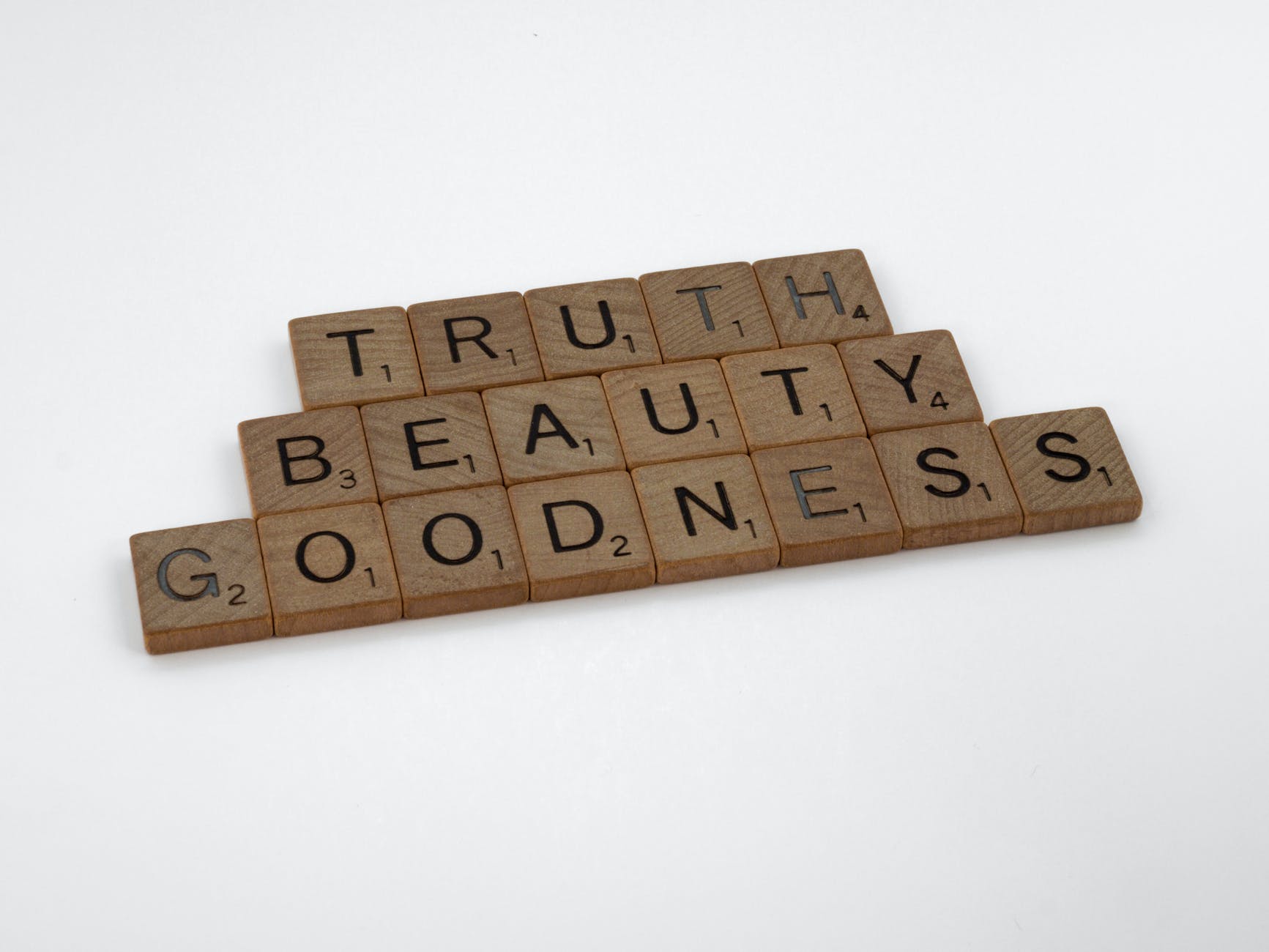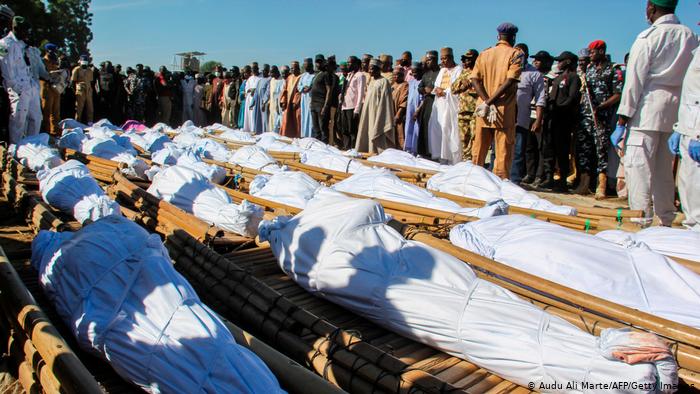Introduction
When Burna Boy won the Grammy Award, I decided to check out his Grammy-award-winning album – Twice as Tall. Before that time, I have heard people talk about his music but never took any interest. And that’s because I am not a big fan of Nigerian music generally (a story for another day).
However, I must say that people like Burna Boy are redefining Nigeria music with the stories they tell, the sounds they create, and the collaborations they form.
The Twice as Tall album contains so many interesting songs that are hard to critique. My favourite is Real Life ft. Stormzy (you should listen to it).
Another interesting song is “Monsters You Made.” The song captures some of the structural deficiencies that create injustice in society. But as interesting as the story it tells and the sound that accompanies it, there are some flawed logic in the song that has implications for civil society.
Now, I know the average Nigerian cares more about the music than the lyrics. Still, because sometimes politics is downstream of culture, we cannot ignore the ideas that our movies, music, and schools are disbursing.
So what’s the issue with “Monsters You Made?”
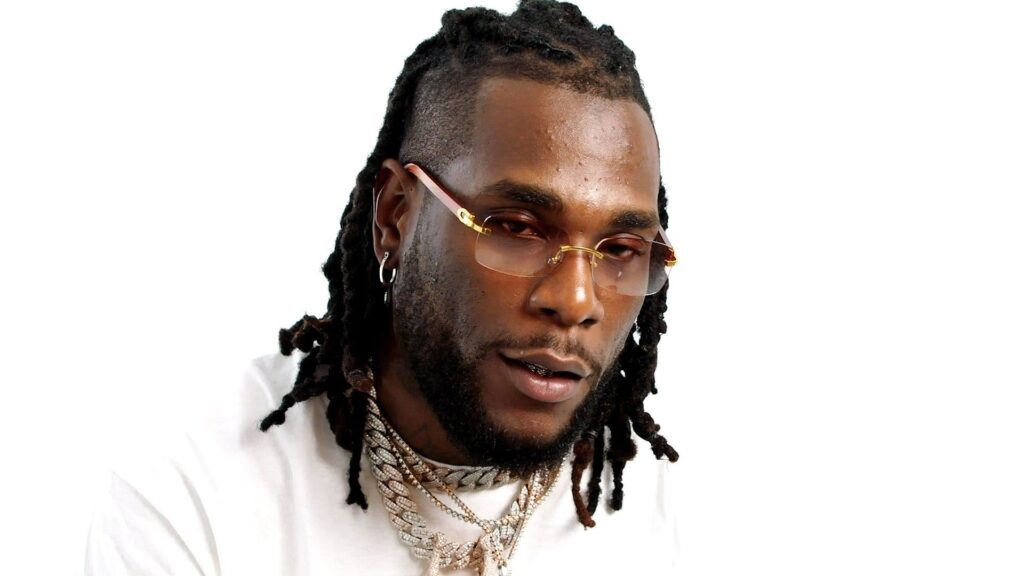
Individual responsibility
The song starts with a man giving a speech. I am not sure when the speech was given, but I guess it was during the Biafra war (but the context of the speech has no bearing on the argument, so I don’t mind being wrong on this one).
He said, “If the government refuses to develop the region and continue the marginalization and injustice, the youth or the next people coming after us, I think, will be more brutal than what we have done.”
In the first verse, there was a point when Burna Boy said, “It’s like the heads of the state ain’t comprehending the hate that the oppressed generate when they have been working as slaves to get some minimum wage. You turn around, and you blame them for their anger and rage, put them in shackles and chains because of what they became. We are the monsters you made.”
The above lines suggest that when people react to economic injustice (working as slaves to get some minimum wage) with anger and rage – the kind that leads them to prison (put them in shackles and chains) – the fault lies with those who are complicit in the creation of such economic injustice (because of what they became, we are the monsters you made).
In other words, the anger and rage (and the accompanying violence, which the music video portrays) are justified because the people are reacting to the injustices the leaders and hegemony have created. If they become monsters and do monstrous things, the hegemony must swallow the blame. The hegemony made them what they became; “we are the monsters you made.”
There is no denying that structural deficiencies – political, economic, and social – can truly contribute to undesirable situations. There is a positive correlation between poverty and crime, for example. Revolts and violence are common in authoritarian and totalitarian governments. And so on.
However, what Monsters You Made fails to recognize is the place of individual responsibility and accountability. Human responsibility and accountability arise out of human freedom and choices. For every choice we make, there is another choice we could have made; therefore, we are responsible for the actual choice we made.
But the logic of Monsters You Made suggests that structural deficiencies and the marginalization and injustice they produce somehow make anger, rage, and violence indispensable (the only possible choice). And if it’s indispensable, then the perpetrators cannot be held accountable since society made them what they became.
The problem with this logic is its outright denial of human freedom and accountability. If workers decide to react to perceived economic injustice by revolting (for example, the German Peasants’ War of 1524-1525), they make a conscious choice that is not indispensable. For example, they could have decided to go on strike, stop working in the industry, petition the magistrates, contribute money and start their own venture, etc.
I am not concerned here about the effectiveness of these other options; rather, my point is that the decision of workers to respond in anger, rage, and violence is a conscious and rational one. The injustices themselves do not require (by default) a particular course of action.
Consequently, if the decision to react to them in a certain way is a conscious and rational choice, those who made those decisions are responsible and accountable for the decisions they make.
When Black Lives Matter put Minnesota on fire after Derek Chauvin alleged racist killing of George Floyd, they made a choice. It was not an inevitable action. The supposed structural deficiency that created the supposed injustice did not make the violence indispensable. When they resorted to the destruction of lives and properties, they made a choice and were thereby accountable and responsible for that choice.

Scriptural passages
That every man is responsible for his actions is the burden of Ezekiel 18:19-24. The one who sins against God is the one who dies. The child will not share his parents’ guilt, vice versa. The righteousness of the righteous will be charged against them, and the wickedness of the wicked will be charged against them.
Adam had an excuse for why he disobeyed God in the garden – his wife. His wife had her excuse – the serpent. If we probed the serpent, it would have had its own excuse. But God was not having it. All of them were free moral agents responsible for their choices (Genesis 3:9-13).
Despite the serpent’s lies, Eve could have chosen differently – refusing to eat what God forbade. Whatever Eve did to convince Adam to eat, he could have refused.
That God affirmed their responsibility and accountability is evident from the curses he placed on them. Whatever might be the contributing factors, they made a choice, and it was a bad one. And they were responsible and accountable.
Saul, who was not a Priest, decided to offer the burnt offerings because Samuel, who was the priest, did not come on schedule. That was a good enough excuse, right? No! God held Saul responsible for his actions. He had another choice – wait for the man of God (1 Samuel 13:11-12). It was just as he finished the offering that the prophet came.
In Proverbs 6, Solomon said that when a hungry man steals to satisfy his hunger, people don’t despise him, but when he is caught, he will definitely pay back (verse 30, 31). His hunger won’t be a justification for his theft before the law. Even if his hunger was due to some systemic injustice, he chose to steal, and the law would hold him responsible for it.
When the master gave his servant one bag of gold, he went to bury it because he perceived his master as an unjust man (harvesting where you have not sown and gathering where you have not scattered seed). The character of the master, nonetheless, he was responsible for the choice he made. The master threw him into the outer darkness, the place where there is weeping and gnashing of teeth.
Every man is responsible for his choice because he has the freedom to choose one thing or the other.
The unemployment in the land won’t justify the fraudulent ways of a Yahoo Boy. He had other choices; fraud is not the indispensable result of national unemployment.
The poverty of a woman’s husband won’t justify her adultery, vice versa. Even the inability of the man to satisfy her sexually is not a justification for adultery, vice versa. When the man or the woman decided to cheat, they were making a conscious choice, and they could have done otherwise.
When a man joined a cult or became a political thug because there was no job around, he made a choice. The greed of the rich people in that town does not make his action indispensable. He chose to become a cultist and a thug, and he could have done otherwise.
Similarly, when workers violently revolt against their “oppressors” and political activists violently revolt against the hegemony, they are making a choice. Consequently, they are responsible and accountable for those decisions. They could have made another choice. If the government puts them in shackles and chains, they can’t say, “we are the monsters you made.” Whatever might be the structural deficiencies that influenced their decision, it was still their decision.
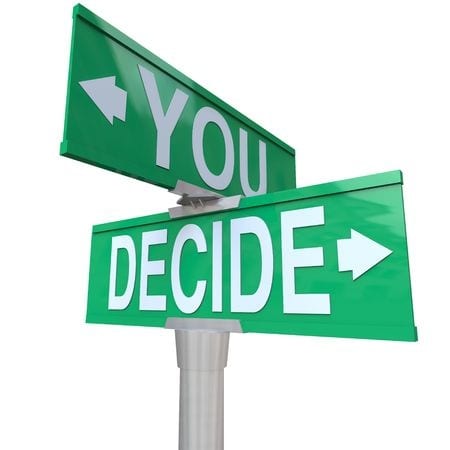
Correlation, causation, and determination
The fundamental mistake that Burna Boy makes (and others make) is to equate a contributing factor with a causative factor or a correlation to a causation. What do I mean?
Poverty is a contributing factor to fraud, thuggery, and cultism, but it is not a causative factor. That is, it does not mean that any poor man will end up becoming a Yahoo boy, thug, or cultist.
There are other factors, and all those other factors come together in a conscious choice. When someone decided to become a Yahoo boy, thug, or cultist, he could have made other choices. How do we know that? Many others in his situation did make other choices.
It’s the same with perceived economic injustice. It is a contributing factor, not a causative factor. When workers decide that anger, rage, and violence is the right step, they could have done other things. And we know that because some workers in structurally deficient work environments have made other choices.
Structural deficiencies and injustice in politics are not determinative of political violence. At the point activists chose to burn it all down, they could have done something else.
Take homosexuality as an example. There is no gay gene that predetermines someone as homosexual. There might be a few biological factors that are correlative, but none of them is decisive or determinative.
So the “I am born a gay” platitude is scientific garbage. Other environmental, cultural, familial factors contribute to a person identifying as gay.
Back to my point: while existing injustices are correlative to violence, they are not determinative, and the choice to be violent is what it is – an actual choice. If monstrosity is how we choose to resolve the injustices, then we cannot just say, “we are the monsters you made.” We can say the government and the existing hegemony contributed to our monstrosity, but they are not determinative. We chose to be monsters, and we have to live with it – responsibility and accountability.
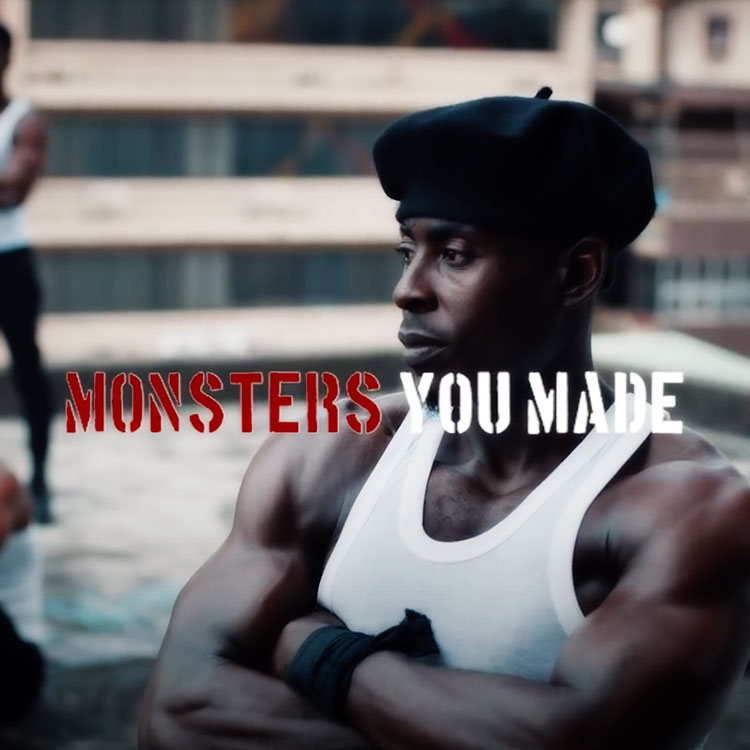
A brief clarification
I am not a pacifist. I am a just-war theorist. I don’t believe that war is always wrong in every situation. It should be avoided as much as possible, but there are situations when war is just, and it should be used as a last resort.
However, when a country, for example, declares war, they cannot say that it is the other country’s fault. If a country chooses war, they made a choice, and they are responsible and accountable. If they lose the war, they cannot come back and say, “we are the monsters you made.”
The other country may have triggered them, but their decision to resolve it through a just war is a choice they made.
Therefore, my primary issue with Burna Boy is not with the justice or injustice of the violence (more on that later) but the fact that those who chose to use it as a tool to seek redress can somehow resort to “we are the monsters we made” when the government throws them into prison for their anger and rage.
Whatever the injustices, they chose anger, rage, and violence, and they should be responsible and accountable.
Dealing with structural deficiencies
Although I believe in personal responsibility, I also believe there are structural deficiencies that we should resolve. Personal responsibility is not a justification for the perpetuation of structural injustices.
As long as structural deficiencies contribute to fraud, violence, riots, etc., we should be seeking to redress them. That they are not determinative of those actions is not an excuse.
For order, peace, justice, and civility to reign in any polity, there must be a consistent effort to remove every contributing factor to fraud, violence, and riots – personal, cultural, political, economic, etc.
So removing structural deficiencies is good. The major question is, “how do we do it?” And once we have decided on the way to do it, let’s know we must all take responsibility for the choices we make.
The wrong way
The wrong way to address economic inequities is to defraud the rich. Fraud is a crime, and those who choose it to address economic inequities must bear the consequences.
Marxist income redistribution that denies or overlooks a person’s right to property is a wrong way to do it. Stealing from the rich for the sake of the poor is wrong. And taxing the rich to death is bad for everyone – after a point, high tax rates reduce tax revenue by reducing compliance, companies also reduce their workforce when tax rates are too high, or they increase their price. In the end, it’s the poor that suffer.
The violent revolt of workers against the rich is also a bad option. Between 100,000 and 300,000 peasants were slaughtered in the German Peasants’ War. They made a choice and were held accountable for it.
Plus, the assumption that every economic inequality (a gap between rich and poor) results from injustice is a wrong one. Even if everyone starts all over again, some people will become richer than others. Killing off all the rich people won’t solve anything. The failure of communist regimes is a testimony.
It’s the same with political structural deficiencies. Violence must not always be the primary way to redress such injustices. Rogue police officers, underrepresentation of some people in governance, government ineptitude and corruption are banes in any society. But responding to them through riots, mob violence, and gawky revolts is wrong.
If we choose any of the options above, we must be willing to face the consequences.
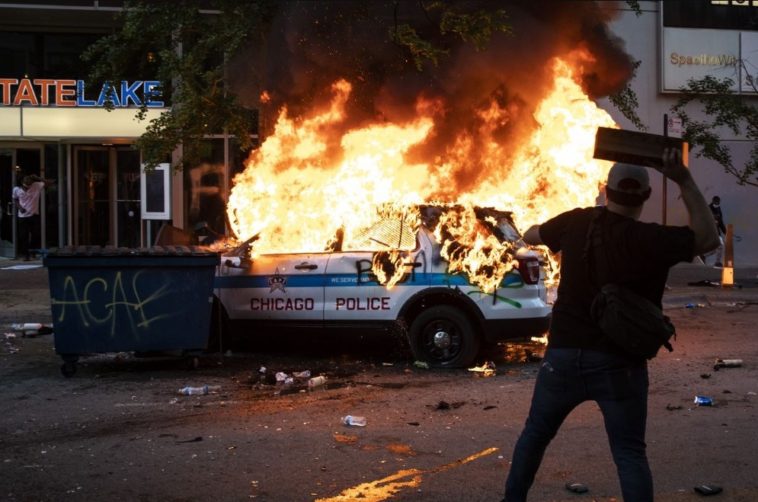
The right way
Combating poverty is not an easy thing. There are no simple solutions. But it must start with a country producing more goods and services per capita.
Merely redistributing already existent wealth does not prosper any nation. Prosperity comes when the productive capacities of a nation increase.
With more productive enterprises, there are more jobs, and more competition for labour (at some levels) also increases the wage rate.
A prosperous nation requires the rule of law, a free-market economy, low tax rates that encourage increased production and entrepreneurship, basic regulations that protect customers by preventing monopoly and cartels (encouraging competition instead), and an accountable government. (Read The Poverty of Nations by Barry Asmus and Wayne Grudem for more on this.)
In such environments, economic mobility becomes easier – people can move up from the bottom of the ladder. There will always be people at the bottom of the ladder; the issue is whether those there today are the same people there ten years ago.
Economic progress is not eradicating the lower class but the mobility among the classes – the ease with which people can move from the low class to the middle class, and on and on.
Some people will earn low wages because of the relevance of their skills to the current trend in the local and global market. That’s not economic injustice. The problem is when structural deficiencies prevent those people from improving their skillset and moving up the ladder.
The physical demand of a job is not positively correlated to wages, so someone working hard and earning minimum wage is not necessarily economic injustice, as per Burna Boy. The skills in demand today are primarily intellectual and skilled rather than physical. That’s reality, not necessarily injustice.
So as we seek to improve productive activities, we should ensure that there is economic mobility.
And regarding government, those of us who live in democratic governments have a litany of options to redress structural deficiencies in the government. We can vote out corrupt and inefficient leaders, and we can even recall our representatives in the Senate and the House of Representatives.
Also, we can use remonstrance and the power of opposition parties to mount pressures on governments. We can send letters, write articles, organize peaceful protests, and embark on strikes. We can also pray for our leaders (1 Timothy 2:2).
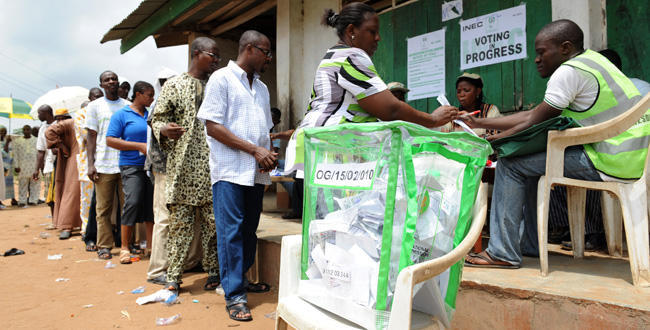
However, I believe there is a place for resisting the government in addition to all the above. There is a passive resistance where we refuse to do what magistrates command us to do because their commands are ungodly and tyrannical.
Peter and John refused to stop preaching when the synagogue leaders tried to stop them (Acts 4:18-20). The three Hebrew boys disobeyed Nebuchadnezzar’s orders to bow to his image (Daniel 3), and Daniel disobeyed the command to stop praying (Daniel 6).
When a government issues commands that trample our God-given fundamental human rights or compel us to disobey God, we must resist by disobeying. The authority God gave to magistrates (Romans 13) is not absolute; only God has absolute authority.
If the government continues to be tyrannical, we also have other options. For one, leaving the country or state is an option. The Pilgrim Fathers left Britain for the new land (present US) in search of greater freedom. And many people left communist regimes and migrated to the US in the 20th century.
In Protestant Resistance Theory (PRT), there is a doctrine called “the doctrine of the lesser magistrates.” The doctrine teaches that when a higher magistrate (think President) is tyrannical, the people can seek out a lower magistrate (think governor) for protection.
For example, in 39 A.D., Caligula, the Roman Emperor, commanded Petronius, the governor of Syria and Palestine, to install an image of himself (Caligula) in the Jewish temple. The Jews protested and remonstrated Petronius to do no such thing. Moved by their arguments, he wrote to Caligula that he wouldn’t obey his order (a death sentence in the empire). The emperor commanded Petronius to commit suicide. But before the order got to Petronius, Caligula was murdered by his praetorian guards.
As a lesser magistrate, Petronius stood with the people against the tyrannical emperor to defend their religious liberty.
Similarly, Prince Frederick, the elector of Saxony, a lesser magistrate, protected Martin Luther when Emperor Charles commanded his apprehension.
A lesser magistrate may be a state governor, a local government chairman, a judge, a legislator, etc. A magistrate is someone who has official power and responsibilities at whatever levels – a public civil officer.
When we resist tyrannical (authoritarian or totalitarian) governments, and they persist in their tyranny, we should remonstrate and appeal to a lesser magistrate to protect and defend our rights against the higher magistrate.
And in the case that the higher magistrate resorts to using force against the people and their lesser magistrates to compel obedience, the lesser magistrate might have to use force active resistance) to defend the people against such a tyrannical government (though force should always be the last last option).
The PRT is not pacifist. However, for active resistance to be valid, it must a) be against a truly tyrannical government, b) be the last resort, c) be defensive (response to the higher magistrate’s resort to force), d) be led by a lesser magistrate.
The last point is important because it distinguishes PRT from the mob violence, rioting, and gawky revolts that often follow some political activism.
An example of active resistance is in 2 Kings 11, where Jehoiada, a lesser magistrate, led a revolt against Athaliah, the tyrannical Queen who destroyed the royal family and usurped the throne.
Glenn Sunshine, in Slaying Leviathan, says:
“Like the Reformers, we need to reject violence, rioting, looting, anarchy, and chaos in the name of social change. No matter how good the cause, these actions are never justified…But what about attacks on us and our liberty? First, we live in a different political environment than the Reformers. In a republic, we have more options to respond to threats than they did five hundred years ago, and we should make use of them.
Second, the Reformers did not take action until they were threatened with war. Persecution, heresy trials, even brutal executions, did not trigger a violent response for self-defense. Some died; others, like Calvin, fled into exile. But they did not take up arms until it became necessary to defend the larger community against the attacks of Catholic forces, whether led by the Habsburgs, the Valois, or the Guises.” (emphasis mine).
Glenn here emphasizes the four points above. There were tyrannical governments who declared war on protestant cities because of their passive resistance to tyranny. They took up arms as a defensive last resort against true tyrants. And they acted under the authority of their princes.
But even though active resistance is the last resort, it is also a choice. We can decide to be pacifists and allow them to kill us. Therefore, if it turns awry, we cannot say, “we are the monsters you made.” We chose freedom, and if we lose, we should be responsible and accountable.
So again, while I differ with Burna Boy and political activists on how to confront structural deficiencies (active resistance only as a defensive last resort against a truly tyrannical government and under the leadership of a lesser magistrate), my primary disagreement is the unwillingness to take responsibility.
Anyone who died following the Protestant Resistance Theory should gladly take responsibility for what he did. There are times when dying in the fight for freedom and justice (ordered and coordinated according to the PRT) is a good and courageous thing. In that case, taking responsibility is a positive thing. We are not the monsters you made; we are the people who would rather die than be in bondage to a tyrannical government. We chose freedom, and we will proudly die for it.
From Magdeburg to the American Revolutionary War to the Cold War, among others, those who fight in the cause of freedom against genuine tyranny should gladly take responsibility for what they did. This is the choice we make, not what we became because of others.
Conclusion
While being a revolutionary seems to solve problems quickly, the costs are always massive. As believers, we must commit to being reformers. Reformers are patient – they take the long but less costly route.
Reformers pray, preach, and teach. They participate in the political process and seek to raise a new generation of politically conscious people. They also commit to the preaching of the gospel because nothing else can soften human hearts and cause social, cultural, and political transformations.
Of course, there are times when reformers passively resist and, as a last last defensive resort, actively resist. However, they never hope that time comes, and they are never quick to precipitate it. They also don’t resort to mob violence and anarchy.
Reformers are in it for the long run. They don’t even mind if they don’t see the returns on their investments in their lifetime. They keep hoping, praying, and doing, believing that one day their country will become all they dream it would.
